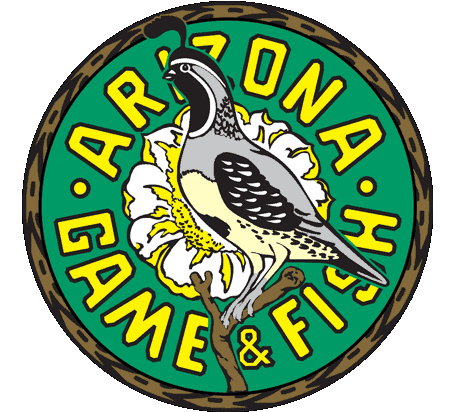recommending changes to next year’s hunting and fishing regulations,
expanding upon the success of several resource management initiatives.
– Lake Havasu
Proposals being considered include: an expansion of special
whitetail buck harvest regulations into 40 more counties, broadening of
the popular Managed Lands Permit Program to include provisions for
upland game birds and elimination of the trophy tarpon tagging
requirements.
The department will be seeking comment on these and other proposed
changes to the state’s hunting and fishing regulations during an
upcoming series of public hearings.
Each year, TPWD considers changes in hunting and fishing regulations
to achieve resource management objectives and maximize outdoor
recreation opportunities consistent with good stewardship. The Texas
Parks and Wildlife Commission will make a final decision on the
proposals during its April 5 public hearing.
Expand special buck harvest regulations in 40 counties: Among
the most ambitious proposals considered is an expansion of special
antler restrictions on whitetail deer. Antler restriction regulations
currently in effect in 21 counties in the Oak Prairie ecoregion have
been effective in improving the age structure of the buck herd,
increasing hunter opportunity, and encouraging landowners and hunters
to become more actively involved in better habitat management.
Under the regulation, a lawful buck is defined as any buck having at
least one unbranched antler OR an inside antler spread of at least 13
inches. The bag limit in the affected counties would be two lawful
bucks, no more than one of which may have an inside spread of greater
than 13 inches.
Additional counties being considered under this regulation include:
Bell, Bosque, Bowie, Camp, Cass, Cherokee, Comal (east of IH 35),
Comanche, Coryell, Delta, Eastland, Erath, Fannin, Franklin, Gregg,
Hamilton, Harrison, Hays (east of IH 35), Hopkins, Houston, Lamar,
Lampasas, Leon, Marion, Morris, Nacogdoches, Panola, Rains, Red River,
Rusk, Sabine, San Augustine, Shelby, Somervell, Titus, Travis (east of
IH 35), Upshur, Williamson, Wilson, and Wood counties.
Hunting pressure on buck deer in these counties has been excessive
for many years. In 1971, the bag limit in most counties in the eastern
third of the state was reduced from two bucks to one in an effort to
mitigate excessive hunting pressure.
Despite the reduction, the data continues to indicate excessive
harvest of bucks, which results in very poor age structure. Research
results indicate that poor age structure within a buck herd creates a
longer breeding season, which in turn leads to a longer fawning season
and a reduction in fawn production. Poor age structure also contributes
to adverse hunter satisfaction.
The criteria used for candidate counties were: the county currently
must be a one-buck county, 60 percent of the buck harvest in the county
must consist of bucks less than 3.5 years of age, and the county must
have a contiguous border with another county in which antler
restriction regulations have been implemented. On this basis, the
department identified the 40 counties affected by the proposed
amendment.
Expand managed lands permits to upland game birds: Another
proposal would allow for the establishment of special seasons and bag
limits for upland game birds (Rio Grande turkey, quail, pheasant,
lesser prairie-chicken, and chachalaca), by species, on properties
managed by the landowner under a department-approved wildlife
management plan.
The plan would be required to incorporate habitat-based management
regimes beneficial to these upland game bird species. In return,
landowners would be given additional flexibility in managing harvest
based on annual quotas determined by a combination of data including
existing habitat conditions and quality of improvements, populations
surveys to determine bird production and considerations to assure
carrying through a surplus sufficient to maintain or increase future
population levels, and keeping decisions based on management goals.
The department believes that the use of incentives such as enhanced
bag limits and extended season lengths are useful tools to encourage
landowners to engage in practices that are scientifically proven to
maintain healthy ecosystems.
Create harvest rules for alligator hunting: TPWD is
also proposing to establish the open seasons, rules for tag issuance
and use, reporting requirements, and provisions for the sale of
alligators taken under a Texas hunting license in counties outside the
historic range of the American alligator in Texas; basically counties
outside East Texas and along the coast.
Increase deer bag limit in Upton County: TPWD is
also proposing to implement a four-deer bag limit for the entirety of
Upton County. Under current rules, the bag limit in the portions of
Upton County that are either north of U.S. Highway 67 or both south of
U.S. Highway 67 and west of State Highway 349 is three deer.
If implemented, the entire county would have a January muzzleloader
season for antlerless and spike-buck deer. Department data indicate
that deer populations in the northern and western parts of the county
are increasing and able to withstand additional hunting pressure.
Additionally, the counties adjoining Upton County on the east and
northeast (Glasscock and Reagan counties) contain deer densities
similar to those found in Upton County but are under a more liberal
regulation (5 deer; no more than 2 bucks) than that being proposed for
Upton County. The regulations have been in effect in Glasscock and
Reagan counties for five years, and the deer herds in these counties
have experienced no adverse impacts. The department therefore does not
anticipate that the proposed amendment will result in either waste or
depletion of the resource. The proposal also would expand the late
muzzleloader season countywide.
Prohibit harvest of largetooth sawfish (Pristis perotteti). The proposal is necessary because the U.S. Fish and Wildlife Service has listed the smalltooth sawfish (Pristis pectinata)
as endangered. Due to the extreme difficulty in distinguishing the
smalltooth sawfish from the largetooth sawfish, the department believes
that protection of both species is the only way to protect the listed
species.
Eliminate trophy tarpon tag: TPWD is also proposing
to eliminate the requirement that tarpon be tagged and instead would
implement a minimum length limit. Under current rules, no person may
catch and retain a tarpon of less than 80 inches in length, but may
retain one tarpon of more than 80 inches in length by tagging the fish
with the trophy tarpon tag from the person’s fishing license.
The proposed amendment would eliminate the tagging requirement and
replace it with a bag limit of one tarpon of 80 inches in length or
longer per person.
Alter black drum harvest rules: A similar proposal
also would modify the rules governing possession of black drum.
Currently, black drum are managed by means of a bag limit combined with
minimum and maximum size limits. The proposed amendment would allow a
person to keep one black drum of greater than 52 inches in length per
day.
Reduce possession limits on flounder: The
department is proposing a reduction to the possession limit for
flounder taken under a recreational license. Under current rule, the
possession limit for any fish is twice the daily bag limit, unless
specified otherwise. Thus, with a daily bag limit of 10, the possession
limit for flounder is 20, and for those flounder fishing trips which
last past midnight the 20 fish per angler possession limit applies. The
proposed change would make the possession limit identical to the daily
bag limit.
Naming tripletail (Lobotes surinamensis) a game fish: TPWD
proposes to list tripletail as a game fish and create a minimum size of
17 inches and daily bag limit of 3 fish [6 in possession]. This rule is
similar to what other states have adopted and since tripletail females
reach reproductive maturity at about 17 inches, this would provide
protection through at least an initial spawning cycle.”
Increasing minimum length limits on largemouth bass: The
current harvest regulations for largemouth bass on 250-acre Marine
Creek Reservoir (Tarrant County) consist of statewide 14-inch minimum
length limit and a five-fish daily bag limit. The proposal would
implement an 18-inch minimum length limit. The change is necessary
because Marine Creek Reservoir has been selected to be involved in the
Operation World Record research project.
The project will involve stocking coded-wire tagged largemouth bass
and monitoring their growth for a minimum of five years following
stocking. The stocked bass are ShareLunker offspring and are valuable,
considering the limited number that will be produced and their
importance to the project.
The ShareLunker program allows anglers to loan
largemouth bass weighing 13 pounds or more to the department for
spawning and research purposes, which include the study of genetics,
life history, growth, performance, behavior, and competition. The
increased length limit will protect the stocked bass through at least
18 inches and will increase the department’s ability to evaluate their
performance in natural systems.
Add baitfish restrictions in Kinney County: The
proposal would add Kinney County to current list of counties where bait
fish are restricted to common carp, fathead minnows, gizzard and
threadfin shad, golden shiners, goldfish, Mexican tetra, Rio Grande
cichlid, silversides (Atherinidae family), and sunfish (Lepomis). The restrictions were promulgated to protect endangered pupfish (Cyprinodon) in the western Texas.
The proposed change would also protect the Devils River minnow,
which only occurs in Val Verde and Kinney counties. Currently, 17
counties in that area, including Val Verde County, have a similar
restriction on certain baitfishes.
Allow bowfishermen to take catfish: Another
proposal would make bowfishing a legal means for the take of flathead,
channel and blue catfish. Bag, possession and size restrictions would
mirror current regulations for legal means and methods for harvest.
Public comment about these issues and others of interest may be made
to TPWD, Regulatory Proposals Public Comment, 4200 Smith School Road,
78744, by phoning (800) 792-1112 or by visiting
www.tpwd.state.tx.us/business/feedback/public_comment.
– Lake Havasu












